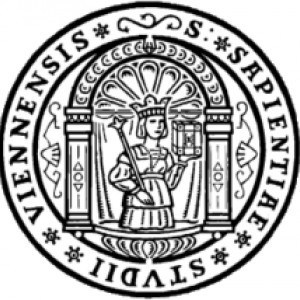Photos of university / #univienna
The Economics degree program at the University of Vienna offers students a comprehensive education in the fundamental principles and analytical techniques of economics. Designed to equip graduates with both theoretical knowledge and practical skills, the program prepares students for a wide range of careers in finance, policy, research, and business. Through a combination of lectures, seminars, and project work, students engage with core topics such as microeconomics, macroeconomics, quantitative methods, and economic policy. The curriculum emphasizes critical thinking, data analysis, and problem-solving abilities essential for understanding complex economic phenomena and making informed decisions. Students also have the opportunity to specialise in areas such as international economics, development economics, or econometrics, allowing them to tailor their studies to their interests and career goals. The program fosters an international perspective, encouraging students to analyze global economic issues and their impact locally and worldwide. Faculty members are renowned experts in their fields, providing high-quality teaching and mentorship. The university's extensive library resources, research centers, and partnerships with industry and governments support an enriching academic environment. Graduates of the program are well-equipped to pursue advanced studies or enter the workforce in diverse sectors, including financial institutions, government agencies, international organizations, and private enterprises. The economics program at the University of Vienna stands out for its rigorous approach, dedicated faculty, and commitment to fostering analytical and research skills necessary for success in an increasingly interconnected world.
Structure
Study focus A (academic orientation)
Compulsory module (52 ECTS)
- Growth and Business Cycles
- Microeconometrics
- Macroeconometrics
- Game Theory and Information Economics
- General Electives
Alternative group of compulsory modules (44 ECTS)
- Advanced Microeconomics
- Dynamic Macroeconomics with Numerics
- Specialization in Economics
Conversatorium for Masterstudents (4 ECTS)
Master thesis (16 ECTS)
Master examination (4 ECTS)
Study focus B (non-academic/business orientation)
Compulsory module (52 ECTS)
- Growth and Business Cycles
- Microeconometrics
- Macroeconometrics
- Game Theory and Information Economics
- General Electives
Alternative group of compulsory modules (44 ECTS)
- Consumption, Production and Welfare B
- Applied Economics
- Specialization
Conversatorium for Masterstudents (4 ECTS)
Master thesis (16 ECTS)
Master examination (4 ECTS)
The Bachelor Study Programme of Economics and a Bachelor Degree in Economics will be recognized without further requirements for admission to the Master Study Programme of Economics. Graduates from other faculties at the University of Vienna or other equivalent university studies in foreign countries that total at least 180 ECTS from local or foreign post or secondary education will require:
Excellent knowledge of English through previous study which should be supported by the following minimum requirements:
- Completion of a degree taught in English, or
- Language certificate that is not older than three years with the following minimum requirements:
- TOEFL: ibt (internet-based); at least 110;
- IELTS: Overall Band Score: 7;
- Cambridge Certificate in Advanced English (CAE): from Grade C (a minimum of 180 points);
- Cambridge Certificate of Proficiency in English (CPE): from Grade C;
- Language Centre of the University of Vienna: language competence proof to level C1.
A minimum of 150 should be reached in the Part Exam of the GRE revised General Tests on the topic “quantitative reasoning” within the last two years
The GRE revised General Test is a standard test, which consists of three parts:
- Verbal reasoning;
- Quantitate reasoning;
- Analytical writing.
The Quantitative Reasoning section, in which mathematical knowledge is examined and a total maximum of 170 points can be acquired, is decisive.
In order to evaluate the equivalence of your degree please include in your application the hours per week and ects in all of your courses. In particular you need to demonstrate that you have acquired sufficient knowledge in the following fields: microeconomics, macroeconomics, game theory, statistics, econometrics and analysis (mathematics). Note that you may be given acceptance subject to taking some additional courses in our bachelor program in case you are missing sufficient background in up to two of these six areas.
Specific admissions requirements are listed in the curriculum. Application for admission is made through the University of Vienna's central admissions office.
Scholarships and grants related to the programme (provided by organizations other than the university):
ERASMUS
Students may be awarded an Erasmus+ EU grant to help cover the travel and subsistence costs incurred in connection with their study period abroad.
Erasmus+ students - whether or not they receive an Erasmus+ EU grant - are exempted from paying fees for tuition, registration, examinations and access to laboratory and library facilities at the host institution.
Scholarship of the Scholarship Foundation of the Republic of Austria
Eligible for application are: descendents of forced labourers (regardless of their country of origin) or people coming from countries that have suffered exceptionally from the Nazi regime, especially from the recruitment of forced labourers.
Students meeting the above mentioned criteria can apply to pursue research on their bachelor thesis, on their diploma or master thesis or their dissertation.
Federal Aid for Students - Study Grant
The federal aid measures of Austrian study financing can be divided into two sections: transfer payments, which students receive directly in cash (direct study financing), and expenses which students benefit from either by transfer payments to the students’ parents or non-cash benefits (indirect study financing).
Direct Federal Aid for Students
As a rule, direct federal aid to students is only granted on the basis of differentiated social criteria and only in cases of concurrent academic advancement. There are only a few cases of direct federal aid awarded to students purely on the basis of performance criteria.
If you are a non-Austrian citizen, you must fulfil some special conditions to be granted equal status with Austrian citizens regarding all kinds of direct federal aid for students. Due to the complexity of the legal parameters it is mandatory that non-Austrian citizens contact the responsible study grant department for further information!
- Study grants
- Grant near completion of studies
- Study allowance for tuition fees
- Student financial aid
- Transport cost allowance
- Child care subsidy
- Insurance cost subsidy
- Performance-related grants
- Mobility grant
- Incentive grants
- Grants for study abroad (Travel cost allowance, Subsidies for language courses)
- Orphan’s pension for students
- Subsidized loans
Indirect Federal Aid for Students
Indirect federal aid for students, which represents an important component of social support during the course of studies, consists mainly of financial resources made available to students’ parents (and/or students via their parents). The legally determined obligation of the parents to care for their children until they developed a capacity for self-preservation constitutes the foundation of entitlement to this type of financial aid. Federal aid for students should provide support to parents in this effort. There are subsidies designed to be made available to students by subsidies for or reductions of certain expenses. The supportive character of these measures is indicated by the fact that indirect federal aid for children usually terminates at the end of a child’s 18th year of age. In case of students this period may be extended to the age limit of 24 or 25 years.
Non-EU Student Exchange Program - Incoming Students
Students from non-European partner universities are entitled to study at the University of Vienna for one or two semesters under the Non-EU Student Exchange Program, provided the University of Vienna has concluded an exchange agreement with the student's home university and that the student has been nominated by the partner university.
Please note that you will need to be able to understand, speak and write German at an adequate level if you want to study at the University of Vienna.
Most of the courses are held in German. The following departments usually also offer some courses in English: Business, Law, English and American Studies, History, Political Science, Anthropology, Philosophy etc.
ERASMUS - Incoming
Students from ERASMUS partner universities may spend one or two semesters at the University of Vienna within the ERASMUS programme.
Participation in the programme is based on a bilateral agreement in the relevant field of study with the partner university, and on the student's nomination for an ERASMUS stay by the partner university.
Students should contact their home university to be nominated as an ERASMUS student at the University of Vienna (ERASMUS Code: A WIEN01). The nomination has to be done via our online nomination system.
ERASMUS students who wish to study at the University of Vienna do not need to have an official language certificate. However, during the online nomination procedure your home university must confirm sufficiant language skills when taking up your studies at the University of Vienna.










